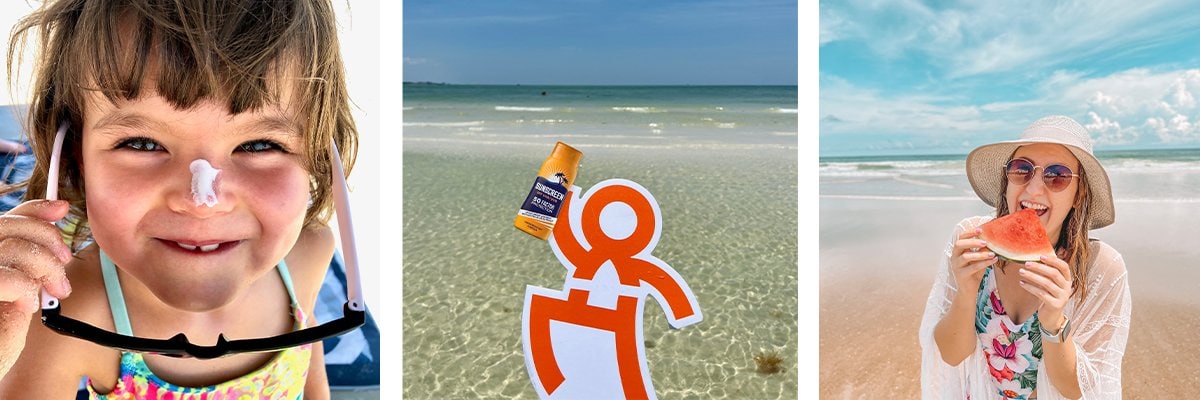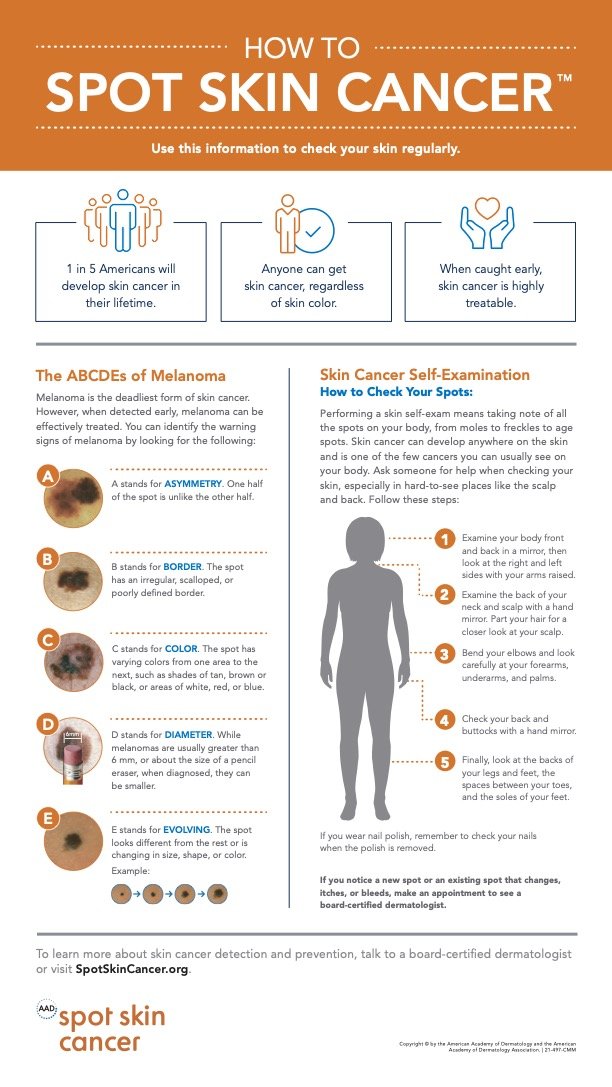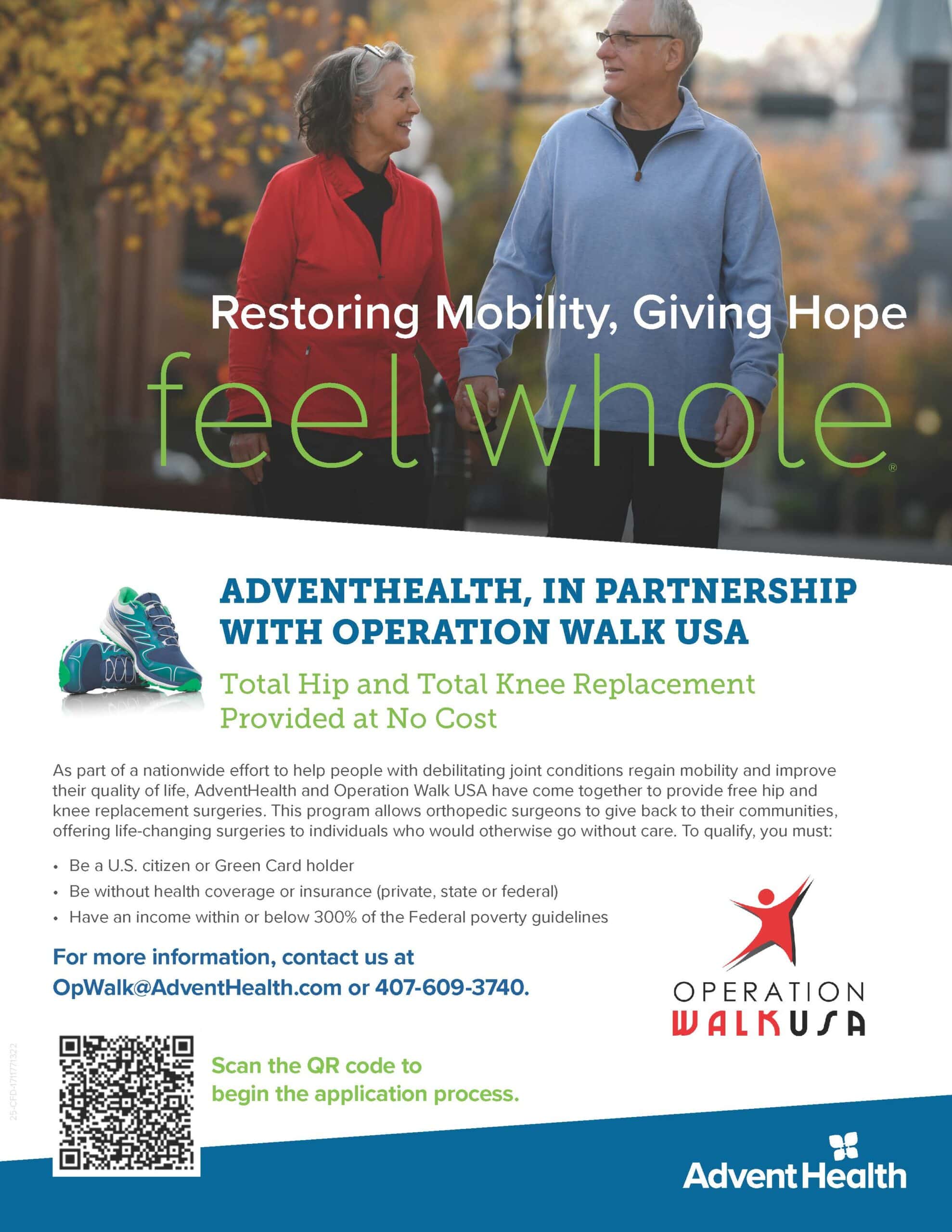Skin Cancer Prevention & Detection

Protecting your skin from the harsh sun, especially here in Florida, is so important! We connected with a local expert, Dr. Bill Steffes from Advanced Dermatology in Winter Garden, to find out what we all need to know about skin cancer prevention and detection.
How common is skin cancer in the United States?
Skin cancer is the most common cancer in the United States. The AAD estimates that 1 in 5 Americans will develop skin cancer over their lifetime. Non-melanoma skin cancer affects more than 3 million Americans per year.
What are the different types of skin cancer?
There are 3 main types of skin cancer: basal cell carcinoma, squamous cell carcinoma, and melanoma. Basal cell and squamous cell carcinomas are the most common and are highly treatable if detected early and treated properly. Melanomas are the most dangerous type of skin cancer and are responsible for most skin cancer deaths.
Who is at risk and at a higher risk for skin cancer?
Skin cancer can affect anyone, regardless of skin color. The incidence of skin cancer among non-Hispanic white individuals is almost 30 times higher than among non-Hispanic black or Asian individuals. However, skin cancer in patients with darker skin tones is often diagnosed in later stages, when it is more difficult to treat.
What can we do to prevent skin cancer?
UV light exposure is the most preventable risk factor for skin cancer. For this reason, the AAD recommends avoiding indoor tanning bed use and wearing sun protective clothing such as long sleeves and a wide brimmed hat. We also recommend wearing a broad-spectrum, water-resistant sunscreen of SPF 30 or higher. Finally, seeking shade when outdoors is recommended.
Walk us through an annual skin cancer check.
During a Total Body Skin Examination, your provider will usually ask some questions to assess your skin cancer risk. Your provider will then perform a close examination of your skin which usually includes not only sun exposed areas but also areas that are usually covered. Dermatology providers often use a dermatoscope to help analyze suspicious lesions. During your TBSE your provider will likely provide some sun protection education and may address other skin concerns you may have.
What moles or spots should we watch out for on our own at home?
Skin cancer warning signs include lesions that are growing or changing in size, shape, or color. Any new growth or lesion that is bleeding, itching, or otherwise bothersome warrants evaluation. Finally, sores that are not healing properly may also be a sign of cancer and should prompt a visit to the dermatologist.

What happens if skin cancer is found? Take us through that process.
When a clinician finds a suspicious lesion, they will usually recommend a biopsy, which is when a sample of the lesion is removed and analyzed for testing. If the pathologist confirms the lesion is cancerous, then the patient will be scheduled for further treatment, which depends on the size and type of skin cancer. The most common treatment is surgery, where the lesion is removed with a safety margin and then that area is closed with stitches. There are other treatments that may be appropriate including curettage, freezing, or sometimes topical creams.
What should we avoid to maintain healthy skin?
Again, the most preventable risk factor for damaging our skin is UV exposure. We should avoid excessive sun exposure and indoor tanning bed use. Smoking also has negative effects on our skin. We discussed some ways to protect our skin earlier in the blog.
One of the great things about living in Central Florida is our warm sunshine year round! This allows our community to enjoy outdoor activities during the winter months. It is important to remember that we need to use sunscreen and sun protective clothing even in the winter months when the air temperature may not be as warm but the UV index is still quite high!!
Finally, I encourage our community to have a Total Body Skin Examination every year. This is especially important for people with fair skin, a history of significant sun exposure, or a personal or family history of skin cancer. Your dermatologist can often find skin cancer at a very early stage when treatment is much easier!!

About the Author
He has a dedicated interest in the early detection and treatment of skin cancer, as well as the management of many common dermatologic disorders, including acne and psoriasis. He is actively involved in the education of dermatology residents and also serves on the Advanced Dermatology and Cosmetic Surgery Leadership Team. His priority is helping patients achieve healthy skin and improving their quality of life.
Share this Post
you might also like
There is nothing worse than a toothache, am I right?? Oral health is very important for overall health and wellbeing, at every age!












